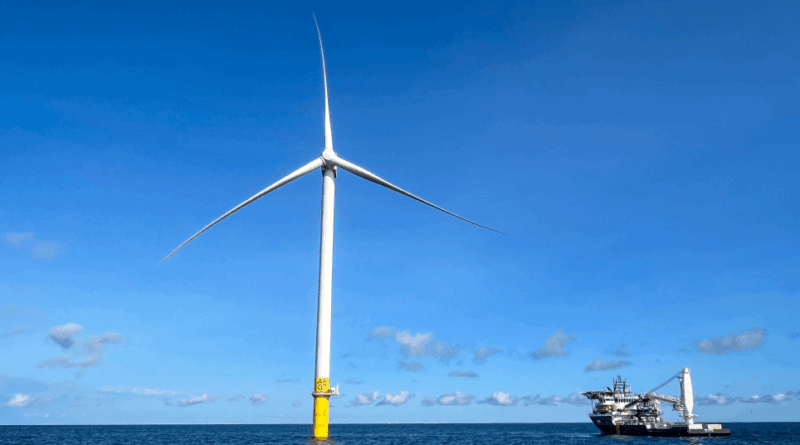A major offshore wind farm in Rhode Island has come to a sudden halt after a stop-work order from the Trump Administration, jeopardizing jobs and the potential to power 350,000 homes. With construction already 80 percent complete, the project’s suspension raises immediate questions about America’s renewable energy future.
Amidst Energy Prices Rise, Trump Kills Jobs, Cuts Off Renewable Energy

Key Takeaways:
- A Trump Administration stop-work order has halted the Revolution Wind project.
- The project was already 80 percent finished, with 45 turbines installed.
- Revolution Wind was set to power approximately 350,000 Rhode Island homes.
- The order raises concerns about job losses and renewable energy growth.
- This development underscores uncertainty in U.S. clean energy policy.
Introduction
The Revolution Wind project off the coast of Rhode Island, once heralded as a significant leap forward for American renewable energy, is at risk of stalling indefinitely. On Friday, the Trump Administration issued a stop-work order for the nearly completed initiative, leaving stakeholders, policymakers, and local communities in limbo.
Background on Revolution Wind
Revolution Wind is an offshore wind project designed to tap into the vast energy potential of the Atlantic coastline. Featuring 65 wind turbines, the venture was already 80 percent complete, with 45 turbines installed. Once fully operational, developers claimed Revolution Wind could supply enough clean power to meet the needs of about 350,000 homes across Rhode Island.
The Stop Work Order
The surprising stop-work directive took effect when federal officials notified project managers that construction should cease immediately. The announcement comes amid rising energy prices and concurrently intensifies a broader national conversation about how the U.S. government should respond to climate and energy challenges. Critics argue that such an abrupt move not only jeopardizes contracted commitments but also disrupts the promise of renewable energy advancements.
Potential Implications
According to initial reactions, halting the project could stall local economic benefits. Sizable investments, job opportunities, and regional development prospects might be impacted by the administration’s decision. Many observers also consider this a bellwether moment for the direction of renewable energy policies in the current political climate.
Looking Ahead
While it remains unclear whether the stop-work order is temporary or signifying a more permanent shift in policy, local officials and clean energy proponents are urging the administration to reverse course. The broader question facing Rhode Island and the nation is whether and how to continue investing in large-scale wind projects that promise a cleaner energy future. For now, Revolution Wind’s fate hangs in the balance, reflecting deeper divisions over the future of American energy independence and employment in the rapidly evolving renewable sector.











